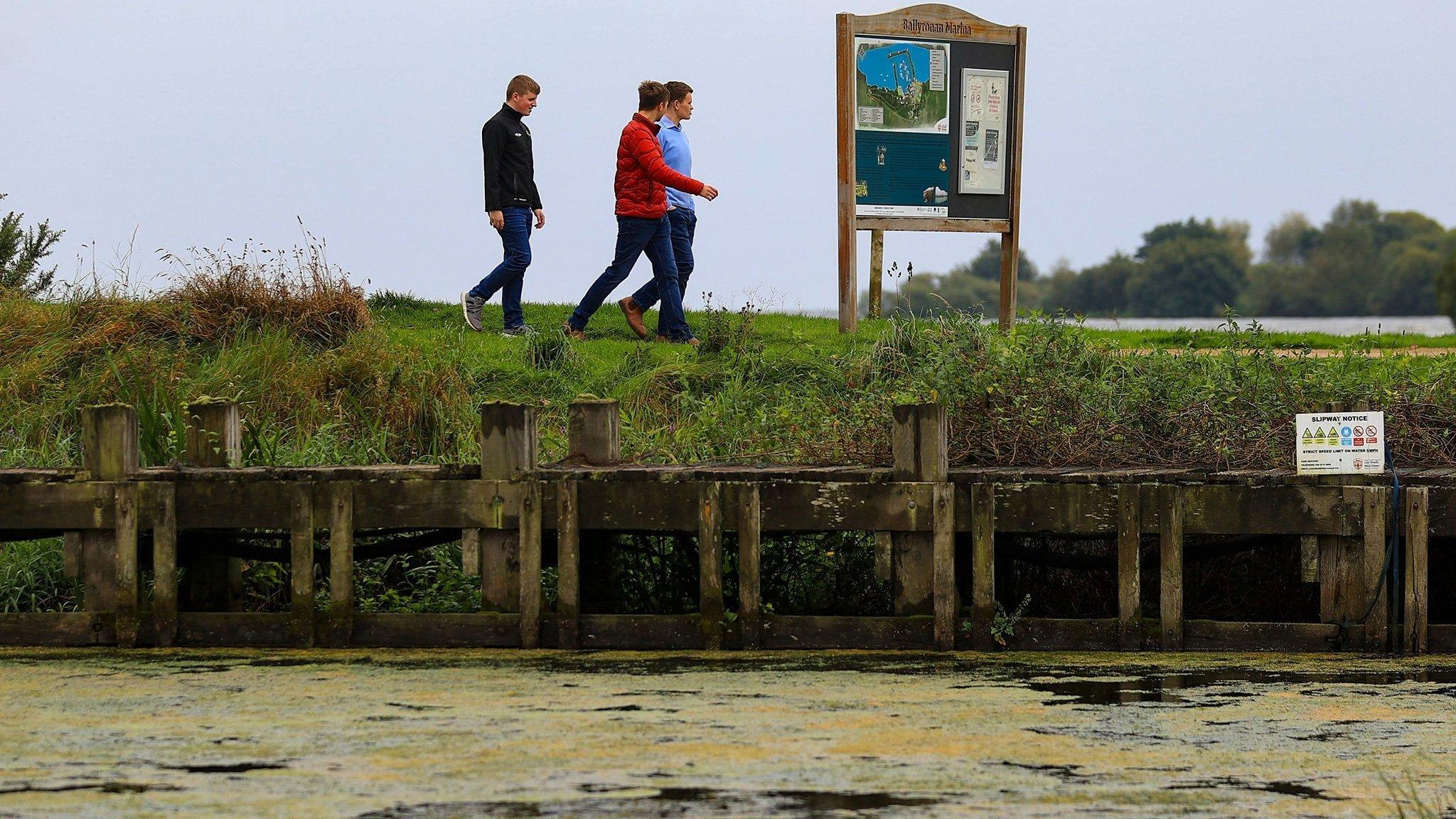Lough Neagh: The year the UK's largest lake turned green
- Published
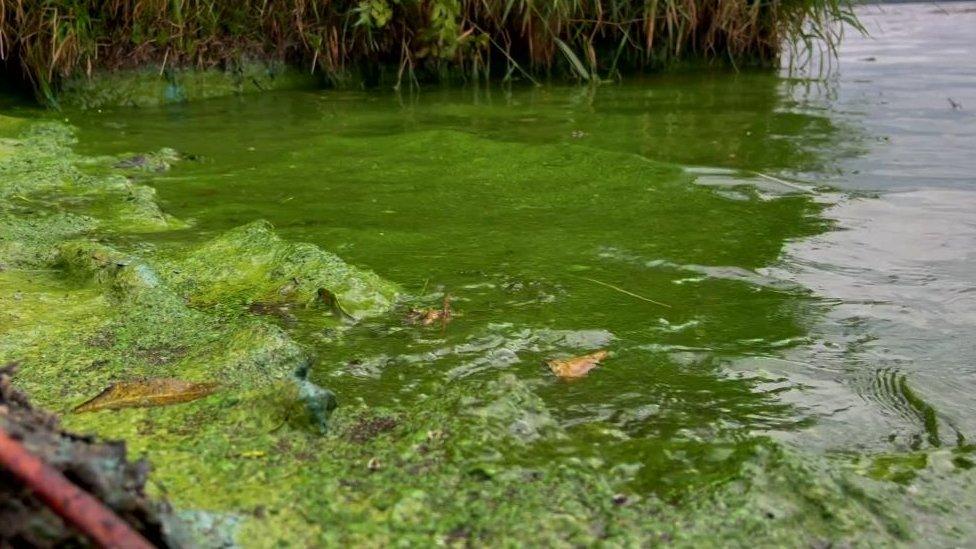
Blue-green algae is toxic to animals and can cause illness in humans
In the world of agriculture and environment in Northern Ireland, one story dominated.
For many, 2023 will forever be the year the water turned green.
In Lough Neagh, multiple factors led to blooms of blue-green algae at levels not seen for half a century.
The algae are in fact bacteria, which can cause skin irritation and sickness in people who come into contact with it, but the biggest risk is to pets, livestock and wildlife.
For them it is extremely toxic.
A number of dog deaths were reported after the animals swam in affected waters.
The blooms also appeared further afield in Lough Erne, but Lough Neagh was worst affected.
Long-term pollution - largely from agriculture - was a key part of the problem.
Run-off of fertiliser from surrounding fields increased the nutrients in the water, feeding the bacteria's growth.
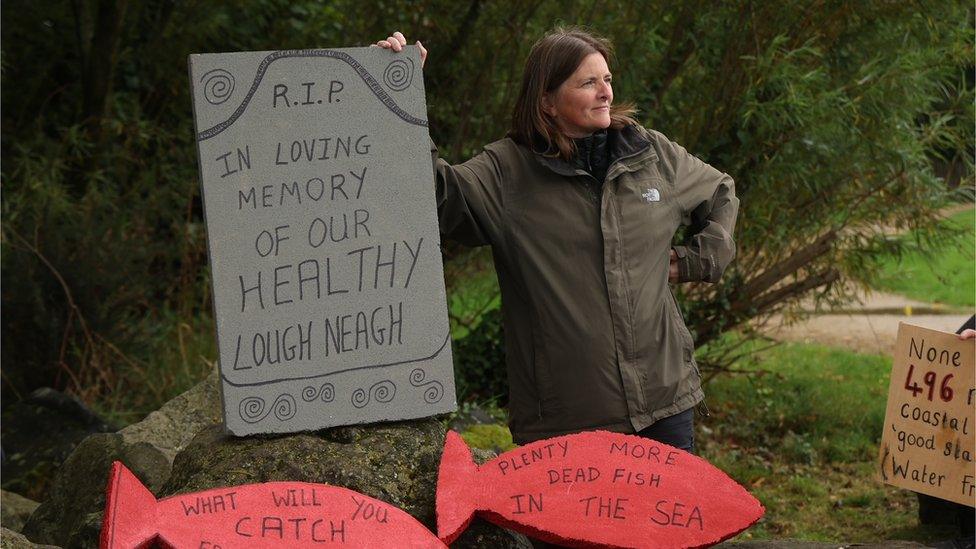
Lough Neagh provides 40% of Northern Ireland's drinking water
Along with invasive species in the form of water-clearing zebra mussels, and the weather effects of climate change, the perfect conditions were created for the potentially toxic algae to bloom from the depths where it has always been present.
Clumps of the blooms broke off and travelled along the Lower Bann to the north coast.
The beaches at Portstewart, Castlerock, Benone and Portrush were all affected.
While blue-green algae cannot survive in the saltwater of the sea, its presence still caused disruptive bathing bans at the height of the July holidays.
All of this led to questions about how the largest freshwater lake in these islands is managed.
People held rallies and public meetings, calling for urgent action.
There was even a wake for the water that campaigners said was dying in plain sight.

A wreath was laid on top of the coffin during the 'wake'
The lough supplies half of Belfast's drinking water - 40% of Northern Ireland's overall.
So it was no surprise that community anger spread out from the shores of the lough, with calls for action being brought to the streets of Belfast.
And there were renewed calls for the lough to be taken into public ownership.
The current owner, the Earl of Shaftesbury, said he was open to selling his family's rights to the soil and lough bed.
But others highlighted that ownership is just part of a complex picture.
Lough Neagh: Why has the UK's largest lake become green and toxic?
Lough Neagh is not the only place in the world where blue-green algae has caused problems.
Scientists working on the Great Lakes in North America have grappled with it for years.
They have been trying to develop solutions to manage the problem.
A working group was formed by the Department of Agriculture, Environment and Rural Affairs (Daera) to look at some long-term fixes.
Colder weather in winter meant clearer waters in Lough Neagh, but scientists warned the problem will take time and effort to resolve.
Flooding
Time was also needed for people to deal with "unprecedented" and "catastrophic" flooding in counties Down, Armagh and Antrim as autumn became winter.
Homeowners were affected, and businesspeople who were gearing up for Christmas found themselves with stock destroyed and premises inaccessible for several days.
As the clean-up began, they all called for government help, with many pointing to the absence of a minister to take responsibility for an immediate support scheme.
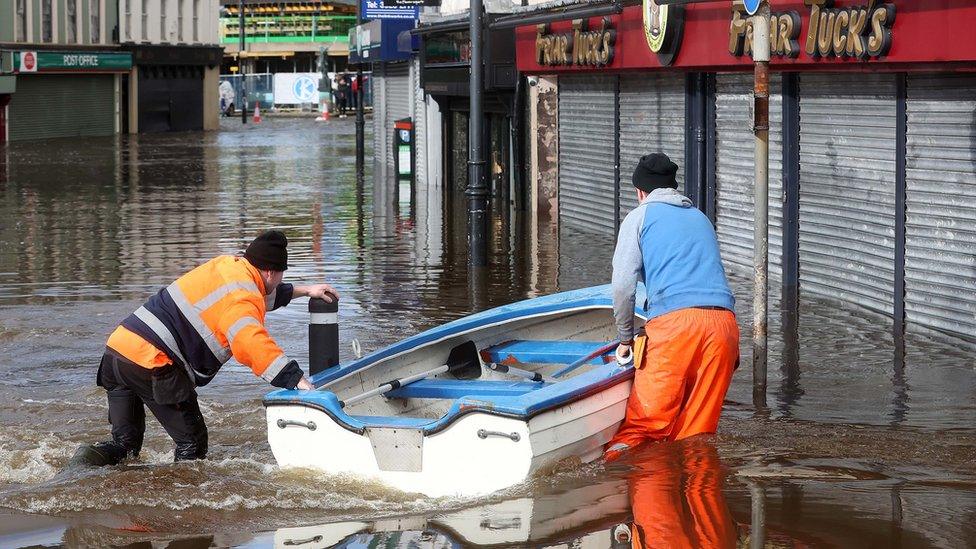
Newry was among the places badly hit by flooding
Researchers pointed to changing weather patterns and increasing rain intensity, bringing the effects of climate change to our doorsteps.
The weather put the potato crop at risk too.
There was more positive news on the north coast.
On Rathlin Island, the hope is that a world-leading project to eradicate invasive predators will mean a safer environment for seabirds in 2024.
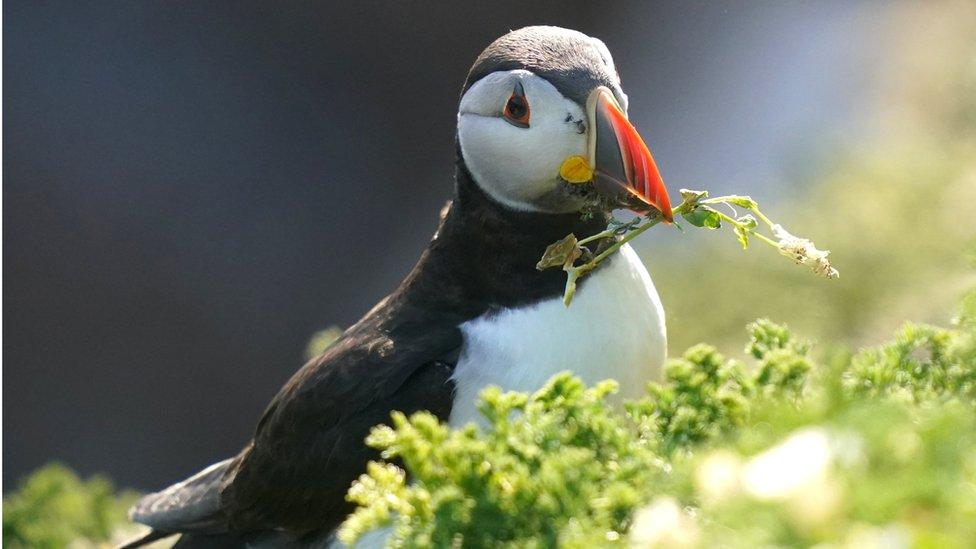
Puffin numbers on Rathlin have gone down in recent years
With 400 monitored ferret traps and 600 bait stations laid to catch rats, hopes are high that the critical seabird populations that use the island for breeding now stand a better chance of recovering from the declines of recent years.
But ongoing monitoring will be required to prevent a return of any predatory species via boat.
What next?
With hopes of a return to Stormont, any incoming agriculture, environment and rural affairs minister will have a busy in-tray, as will others given the cross-cutting nature of environment issues.
Daera is under investigation by the UK's environmental watchdog, the Office for Environmental Protection (OEP).
It is looking into whether the department's ammonia guidance to councils for use in planning decisions breached environmental law.
The OEP has also said it was "disappointed" that an Environmental Improvement Plan would have to be deferred in the absence of an executive.
And the Northern Ireland Affairs Committee is concerned that renewable energy expansion, which comes under the Department for the Economy, has stalled.
2024 will be a year of catching up - and trying to keep up.
- Published3 October 2023
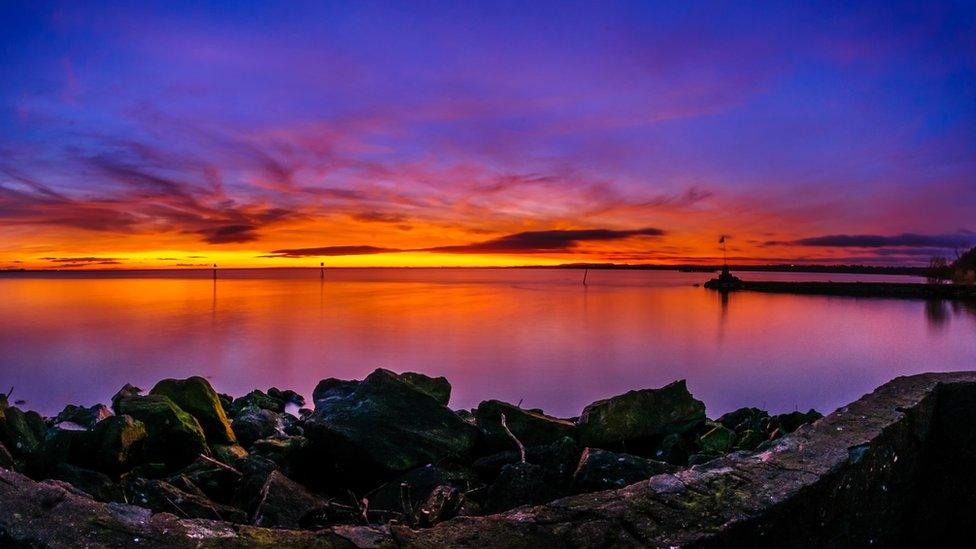
- Published4 October 2023
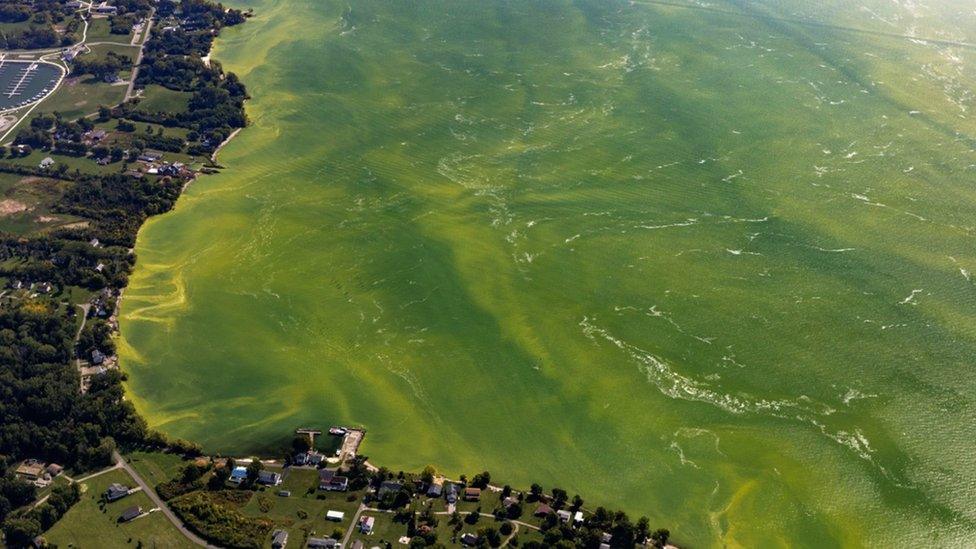
- Published4 October 2023
